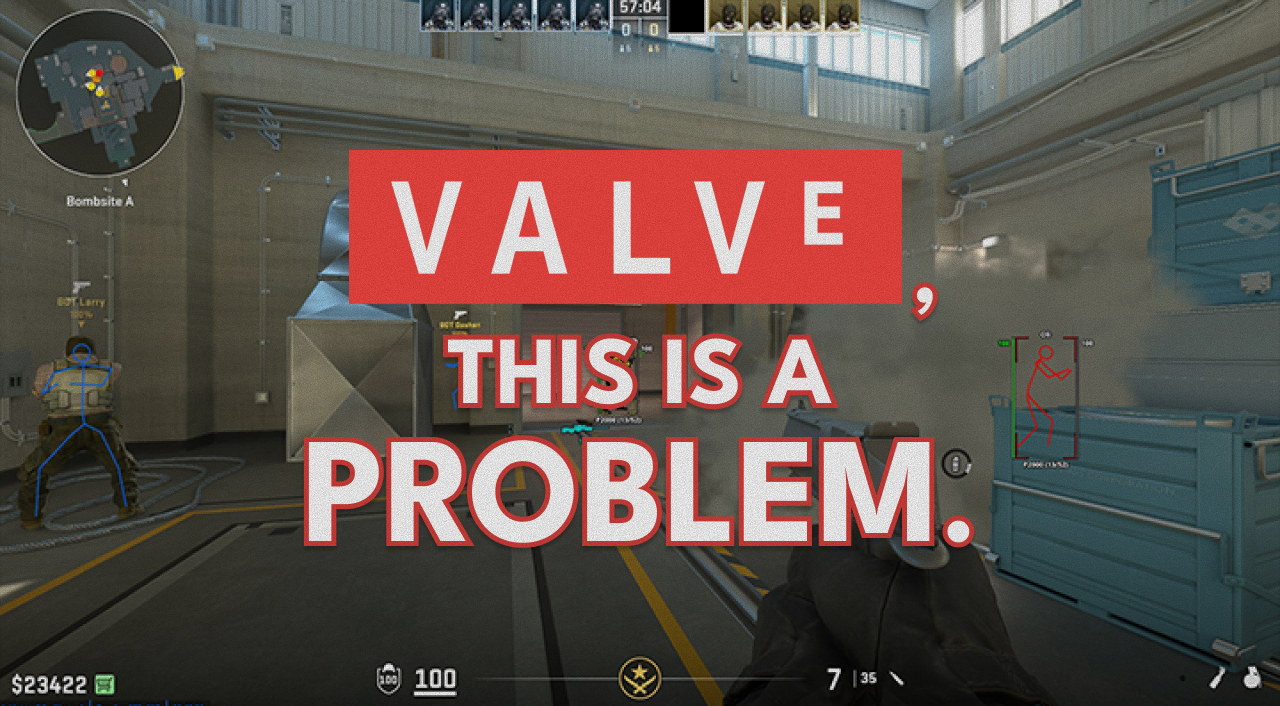Valve, Please Give CS2 a Kernel-Level Anti-Cheat
CS2's cheating problem demands a real solution - but it doesn’t have to come at the cost of player trust.

Me, working in the software industry and being a privacy advocate, can totally see why Valve really does not want to force players to use a kernel-level anti-cheat to play their game.
But look:
We're all aware of the current CS2 cheating problem.
It really is bad, and it NEEDS to be solved.
Valve still thinks a good server-side anti-cheat can do the trick. I mean, if it gets to be splendid then yeah, it may be able to even catch ALL aim & movement hacks - and even some wall hackers through pattern recognition (looking at enemies behind walls and other more intricate behaviors).
But how is a server-side anti-cheat that looks at players behavior supposed to detect radar hacking?
Say a pro team has access to a little counter showing how many players are on the B site - it may not be a single player cheating, and how do you even detect that this is happening in the server? It's not like a single player behaves differently because of that information...
The solution I find ideal
Keep the current VAC Live and Trust Factor system for the majority of the player base - for your casual competitive matches, for the fun modes. Don't force a kernel-level driver on someone who just wants to jump in and play a few games of Dust 2 with their friends. That's fine.
But for Premier mode, once you hit a certain ELO threshold - let's say 20,000 or whatever the data shows is the start of the "serious" player base - things need to change.
At that point, you're not a casual player anymore. You're just not. You've invested hundreds, if not thousands, of hours. You're competing. And for that top tier of competition, competitive integrity should be the absolute priority.
So here's the deal: to play in high-ELO Premier, you have to opt into a more robust, kernel-level anti-cheat.
It only runs when you're playing a Premier match. It doesn't need to be on 24/7 like some others, but it does need to be active for that match to count.
There could also be a system to make it so that you could opt in to the kernel-level anti-cheat even if you have <20,000 ELO, and it would, say, improve your trust factor - but that's another topic.
Also, since cheaters wouldn’t be able to compete at higher levels, the incentive to cheat would drop - meaning fewer cheaters for everyone, not just competitive players.
I can already hear the privacy purists screaming.
But look, I get it. Giving any application kernel-level access IS a big deal.
That's where the final piece of the puzzle comes in: audits and transparency.
Valve is a massive company; they can afford to have their anti-cheat solution regularly audited by independent, reputable cybersecurity firms. They should publish transparency reports detailing what the anti-cheat scans for, what data it collects (and what it doesn't), and how that data is handled - just not in so much detail that it gives cheat developers a blueprint to reverse-engineer or circumvent the system.
This gives us, the players, a verifiable reason to trust the system.
It's not just "trust us, bro". It's "here's the proof from a trusted third party that we're not snooping on your personal files".
At that high level of play, people are already using third-party platforms like FACEIT or ESEA, which often have their own invasive anti-cheats.
The trade-off of running a verified, audited, and temporary kernel driver in exchange for a significantly cleaner competitive environment is one I - and I suspect the vast majority of the high-ranked player base - would take in a heartbeat.
It lets Valve keep its privacy-friendly stance for the masses while providing a cheater-free place for those who take the game most seriously.
It's a win-win.
